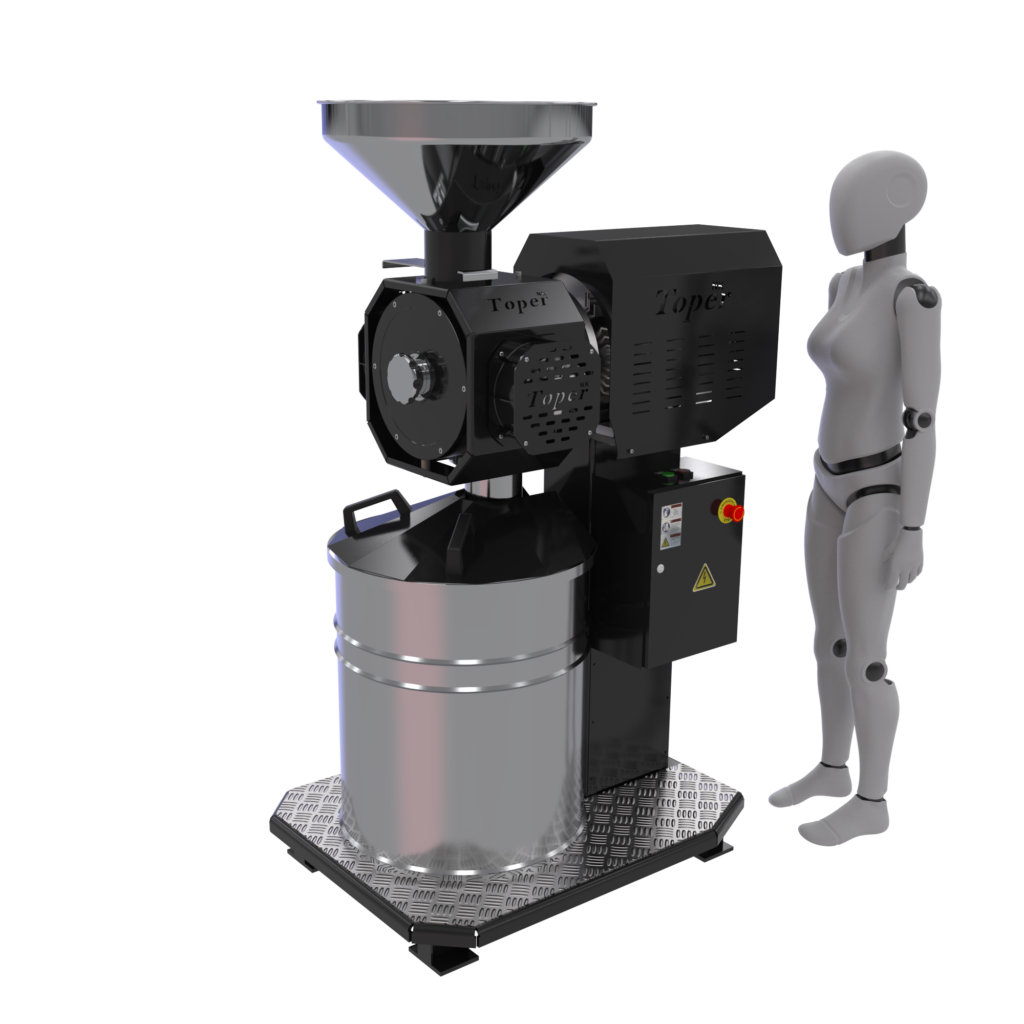Industrial Coffee Grinder: A Full Overview for Bulk Brewing
Industrial Coffee Grinder Overview: Boost Performance and High Quality
In the affordable landscape of coffee manufacturing, choosing the appropriate industrial coffee mill plays a pivotal duty in enhancing both performance and product high quality. Comprehending the nuances of different mill types and essential functions-- such as customizable grind setups and durable construction-- can considerably influence the last taste profile of the coffee. The optimization of the grinding procedure, combined with diligent maintenance, is vital for maintaining performance over time. As we check out these vital elements, it becomes apparent that the effects extend beyond simple devices choice, affecting total organization success in ways that require closer assessment.
Understanding Grinder Kinds
When picking a commercial coffee mill, understanding the numerous kinds available is vital for maximizing both taste extraction and operational effectiveness. Both main kinds of mills are blade mills and burr mills. Blade mills utilize sharp blades that slice coffee beans right into irregular dimensions, resulting in irregular removal and possibly unwanted tastes. While blade mills are frequently extra appropriate and affordable for small procedures, they are typically not suggested for commercial usage.

Inevitably, selecting the right sort of mill is important to maintaining top quality and efficiency in coffee manufacturing, making it critical for services to purchase high-grade burr grinders for optimal outcomes.
Secret Features to Take Into Consideration
Picking an industrial coffee mill needs careful consideration of several vital attributes that can significantly influence both performance and the total coffee experience. One of the key aspects to examine is the grinding mechanism. Burr mills are generally chosen over blade mills, as they provide a consistent grind size, which is crucial for optimum extraction and taste.
An additional crucial feature is the mill's capacity. Depending upon the volume of coffee you need to process, choose a model that can manage your demands without compromising rate or high quality. In addition, think about the grind setups used. A functional grinder with multiple setups enables you to tailor the work size to different developing techniques, enhancing the coffee's taste account.
Assess the mill's noise level, specifically in a busy café or manufacturing environment, where too much sound can be disruptive. Investing in a mill that stabilizes these attributes can substantially enhance both operational efficiency and the top quality of the coffee offered.
Optimizing Grinding Refine
To attain the finest outcomes in coffee prep work, maximizing the grinding process is necessary. The grind size dramatically affects removal, flavor, and overall high quality of the he has a good point made coffee.


In addition, monitoring the grinding speed can enhance the procedure. Slower grinding commonly generates much less warmth, maintaining delicate tastes and fragrances. Alternatively, much faster grinding might generate extreme warm, negatively impacting the coffee's quality.
Maintenance and Care Tips
Appropriate maintenance and care of industrial coffee mills are crucial for guaranteeing ideal performance and long life. Normal cleansing is the foundation of upkeep; deposit build-up can influence taste and grinding effectiveness. It is a good idea to clean up the mill after each usage, cleaning down the exterior and removing any kind of coffee premises from the burrs.
Furthermore, check the grinding burrs for deterioration. Dull burrs can endanger grind consistency, so they should be changed as needed. Industrial Coffee Grinder. Regularly calibrating the mill is also essential, as this maintains the wanted work size for numerous brewing techniques
Lubrication of relocating parts should be executed according to the maker's specs, as this decreases rubbing and extends the life of the tools. It is vital to use food-grade lubricants to ensure safety and security and compliance with wellness policies.
Last but not least, maintain the mill in a stable and completely dry environment to stop corrosion and Read More Here deterioration. By adhering to these upkeep and care pointers, drivers can boost the effectiveness of their commercial coffee mills while making certain top quality outcome and prolonged operational life.
Roi Analysis
Examining the roi (ROI) for industrial coffee grinders is important for businesses seeking to enhance their coffee manufacturing capacities. A comprehensive ROI evaluation helps identify the monetary feasibility of purchasing high-quality grinders, enabling services to consider the first costs versus prospective gains.
To perform a thorough ROI evaluation, businesses should consider several key aspects. Initially, examine the acquisition cost of the grinder, consisting of installation and any necessary modifications to existing infrastructure. Next off, determine operational costs, including power consumption, upkeep expenditures, and labor effectiveness enhancements. High-performance grinders often result in lowered grinding time and enhanced throughput, which can dramatically boost efficiency.
In addition, think about the influence on item high quality. Industrial Coffee Grinder. Superior mills produce an even more constant work dimension, which can improve taste profiles and client fulfillment, ultimately driving sales. By raising the top quality of the end product, companies can warrant higher pricing, causing increased profits
Final Thought
In summary, an industrial coffee grinder plays a critical role in boosting both effectiveness and product top quality within coffee production. By choosing premium burr mills equipped with essential functions such as flexible work settings and long lasting construction, companies can make certain optimal flavor removal. In addition, regular upkeep is important for maintaining mill efficiency and making best use of consumer fulfillment. Inevitably, the critical financial investment in a trusted grinder contributes considerably to enhanced profits and competition in the coffee industry.
In the competitive landscape of coffee production, selecting the right commercial coffee mill plays a crucial function in improving both efficiency and product top quality. The 2 main kinds of mills are blade grinders and burr grinders. Within the burr mill classification, there are flat burr grinders and conical burr mills, each with its benefits. Burr grinders are generally favored over blade mills, as they provide a constant grind size, which is crucial for optimum extraction and flavor.
In recap, a commercial coffee grinder plays a pivotal role in enhancing both performance and product quality within coffee look at this site manufacturing.